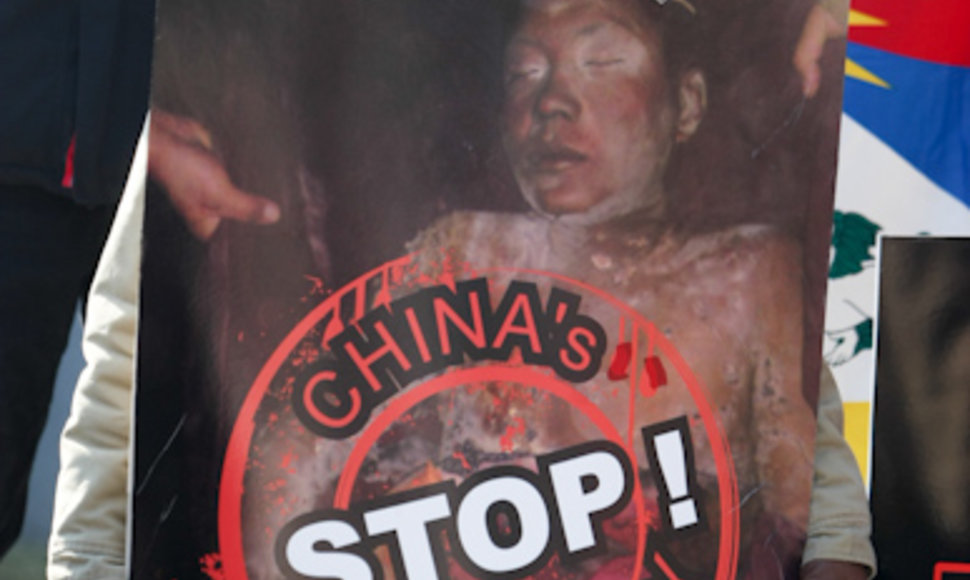"The committee proposed to the Government of the Republic of Lithuania to encourage (…) dialogue between representatives of China and Tibet, and provide support at the European Union level as well as in other international organizations which contribute to strengthening peace and security, respect for human rights and freedoms in the world," the document says.
The committee also stresses that the Universal Declaration of Human Rights states that "all human beings are born free and equal in dignity and rights" and "everyone is entitled to all the rights and freedoms set forth in this Declaration, without distinction of any kind, such as race, colour, sex, language, religion, political or other opinion, national or social origin, property, birth or other status."
The resolution condemns the use of violence "to destroy independent states, restrict nations' right to self-determination, to deny individual human rights, to commit any other systematic and brutal violations of a nation's and human rights." The committee also reminds that, according to modern laws, nation's and human rights violations cannot be deemed an internal affair of any state.
The committee underlined that the People's Republic of China occupied Tibet in 1949 and annexed its territory in 1951 by "imposing the Seventeen Point Agreement for the Peaceful Liberation of Tibet", and from then on the Tibetan nation has not had an opportunity to live freely in its state.
"Fundamental human rights to life, freedom, protection from torture, religion, self-expression and association are violated in Tibet," the document says.
Lithuanian legislators call on Chinese leaders and the Tibetan government in exile "to start honest dialogue on the future of Tibet and seek resolution of all disputed issues in line of international legal norms, and interests of protecting nation and human rights."
March 10 marked the 53rd anniversary of the Tibetan uprising.
In 1959, thousands of peaceful civilians gathered in Tibet's capital Lhasa to demand withdrawal of China's Armed Forces from Tibet. The uprising was violently suppressed, with more than 1 million Tibetans killed since the event.
Human rights organizations say more than 20 people have set themselves on fire in Chinese districts with Tibetan populations, mainly Sichuan, over the past year in protest of the Beijing rule.
China has been denying the accusations of repressions, saying that Tibetan people were now living better than ever before due to huge investment in infrastructure, schools and housing.
Lithuania officially considers Tibet, a region in the Himalaya mountains, part of China. However, it has joined the European Union's call for peaceful regulation of relations between the Chinese administration and Tibet's spiritual leader Dalai Lama and his supporters.












